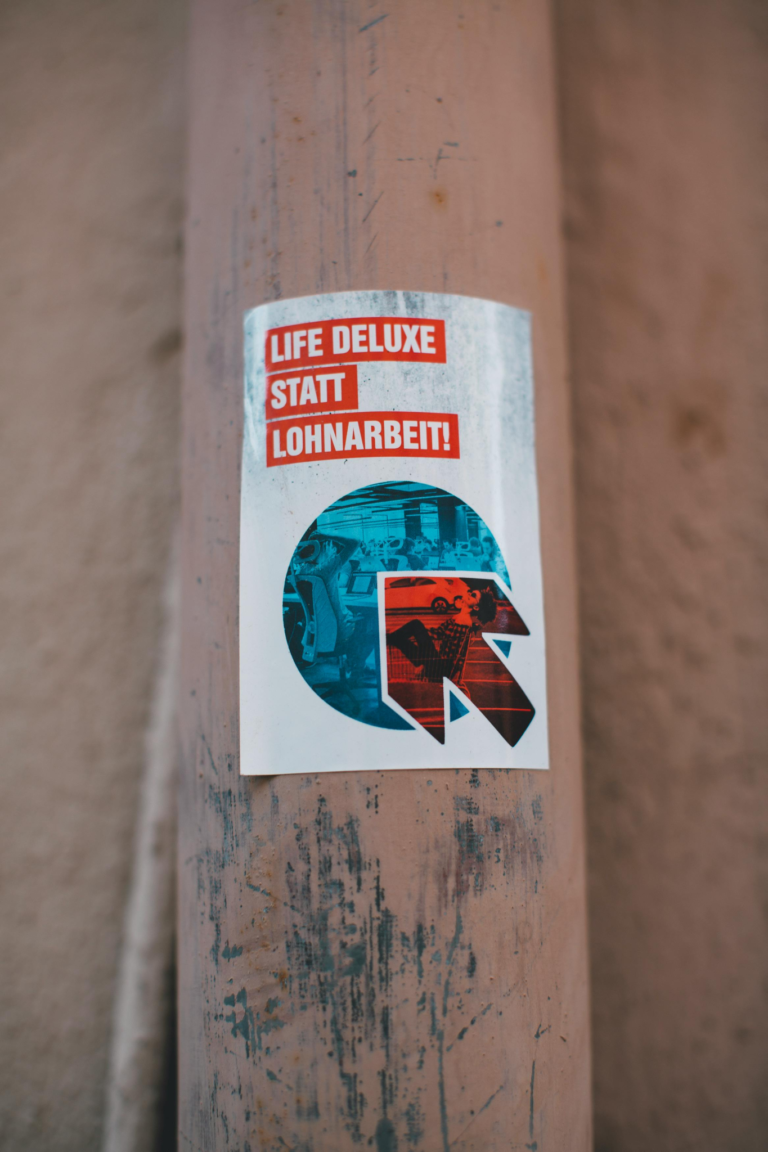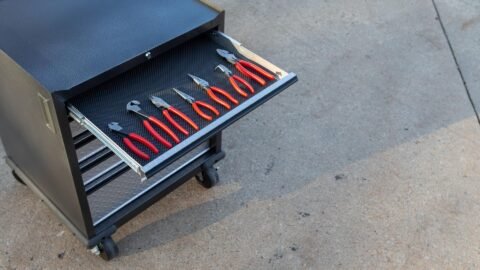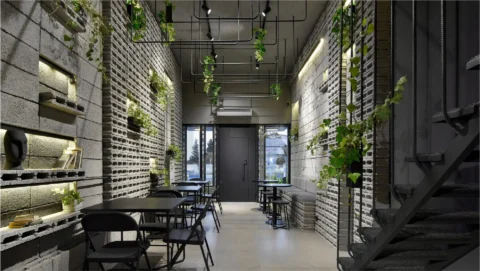:
The significance of stickers in the modern world is not immediately apparent yet it cannot be overstated. They are used for essential product information as well as marketing messages – from bumper stickers to logo decals to decorative stickers to personal expression and advertising. They’re inexpensive and efficient at grabbing attention. Thus, it’s a great idea to test out sticker mockups to determine which resonates the best.
Types of sticker mockups
First, let’s consider the wide variety of mockups stickers organizations use:
- Logo stickers: for branding purposes – on laptops, phone cases, packaging, and storefronts
- Product labels: inform people of ingredients and instructions on jars and boxes
- Beverages: on these, stickers are great branding tools which can be personalized and feature catchphrases
- Wall decals: add character to offices, retail spaces, and art
- Business stickers: these can substitute business cards and be stuck on posts containing contact information
- Holiday stickers: help seize the zeitgeist of holidays for seasonal promotions
- Social media: used to enhance engagement along with animated graphics, hashtags, or calls to action following stories, posts, and other interactive elements
- Car decals: large, great advertising tools catching the eyes of a large audience
- Gift stickers: these are festive and add an extra degree of personal touch and sentiment
Popular sticker mockup designs
Research Gate explored in a recent study the stupendous effects stickers have to further marketing efforts. First, however, we need to consider the choices that exist in terms of different designs of stickers which serve different purposes.
Flat sticker mockups
The most basic and common type, a two-dimensional format, nothing more. They are clear and distraction-free and are used when the intent is to emphasize artwork, thus using a minimalist design.
Die-cut sticker mockups
Custom-shaped stickers following the contours of a design, creating a more visually engaging presentation. These are often used for branding projects, promotional materials, and product packaging.
Transparent stickers
These are used on clear materials, often on glass, plastic, or smooth surfaces. These exhibit a sense of elegance and versatility and are common in eco-friendly and minimalist branding efforts.
Holographic sticker mockups
These are great for designs aiming to stand out with a futuristic and momentous appeal, mimicking the light-reflecting properties of holographic materials by shimmering and alternating colors under different lighting. These are great for high-tech, luxury, or other premium products.
Sticker sheets
Multiple stickers are displayed on a single sheet to be cut out. These are good for product presentation on stationery items, promotional giveaways, or craft markets.
Textured surface mockups
These portray how well a sticker will look when stuck on wood, metal, or fabric for instance. These are irregular surfaces and are useful in industrial, outdoor, or rugged contexts.
Creative Sticker Ideas
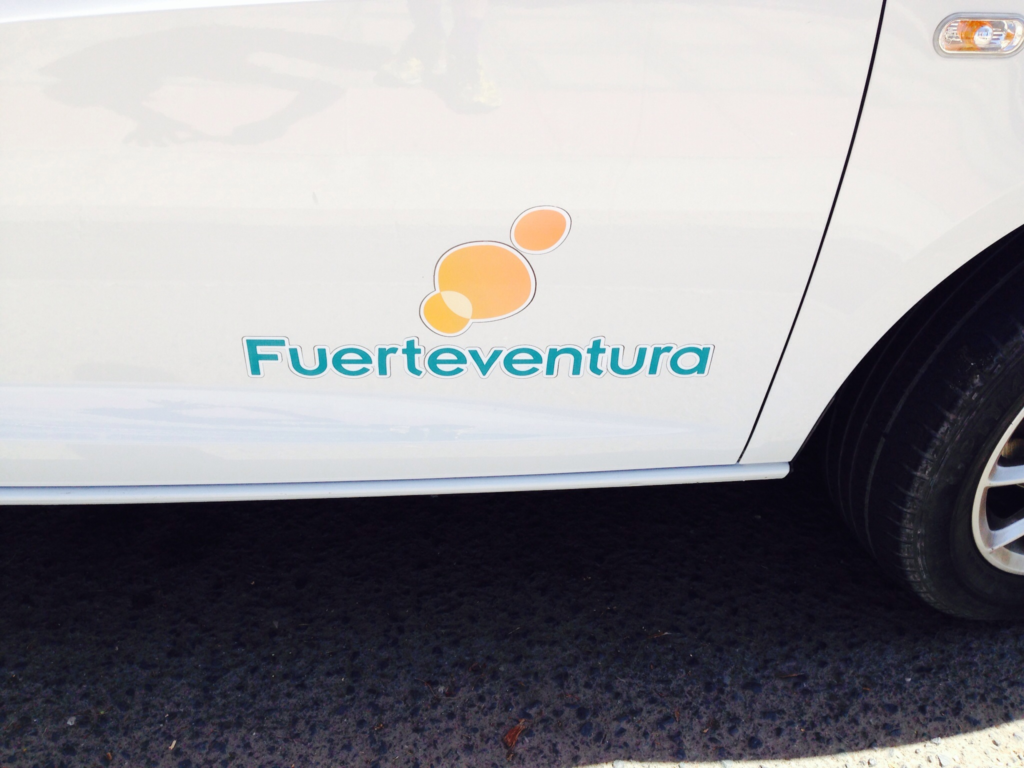
Now that we’ve studied the variations of stickers that exist, let’s examine some wise strategies and ideas to pursue to make them hit home for passers-by and online visitors.
Create realistic contexts
Instead of using plain backgrounds, create a real-world environment around the sticker and the object it’s placed on to reflect the purpose of the sticker. This may be a coffee shop scene for a cafe brand, a cluttered desk for stationary stickers, or a storefront window for a business logo decal to really bring the scene to life.
Incorporate interactive layers
Using elements like peeling edges, curled corners, or partially removed stickers adds depth and realism. You can show the actual adhesion to a textured surface, the light shining off the sticker, or a glossy texture.
Showcase everyday applications
To really drive home the impact of the sticker, present stickers as they’d be used in real-life situations, underscoring their practicality and bridging the gap between concept and reality.
Mix and match sticker styles
Using different types of stickers creates a more dynamic presentation. You could use, say, die-cut designs alongside round stickers or put transparent stickers on textured surfaces.
Use props
These help reinforce the background surrounding the image object. Leaves and gardening tools can complement nature-themed stickers. Tech-industry stickers could be accompanied by gadgets or a circuit board.
Bold visual themes
If it’s a holographic sticker, make sure the effect is strong. Make sure that you demonstrate how seamlessly stickers blend into a glass surface. In general, it’s best to use bright colors, contrasting patterns, and oversized stickers. Add dramatic action, such as items spilling out of a box or appearing layered across objects.
Play with perspective and layouts
Be sure to use a variety of angles because people like to visualize objects from different viewpoints, as well as close-ups and overlapping designs.
Apple announced its own sticker generation AI, however, it’s hard to achieve the precise desired effect with them, lacking some of the specific detail producers wish to control.
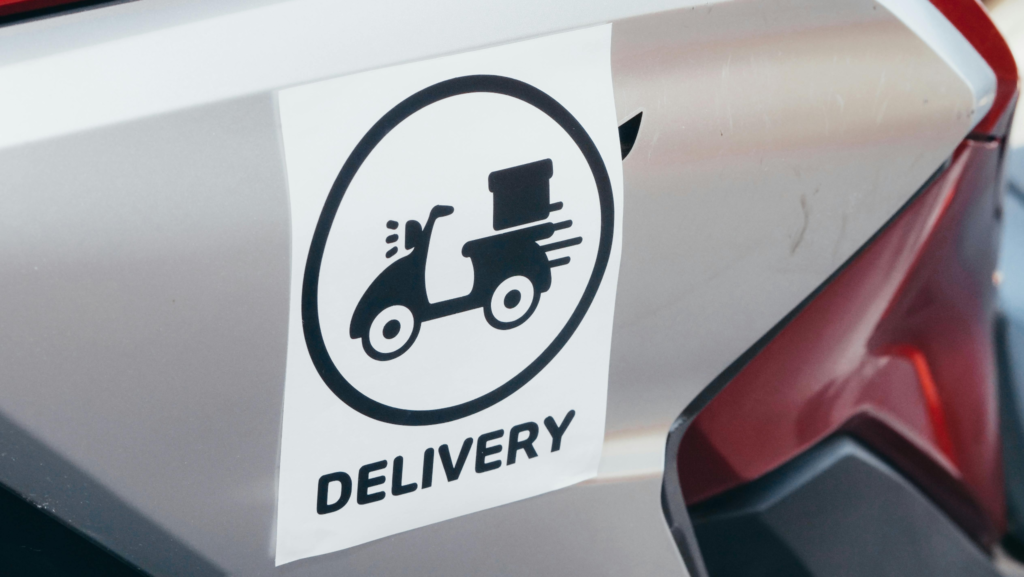
Affinity Photo Directions
Affinity Photo is a remarkable tool that gives users all the same basic functions that Photoshop offers but costs significantly less. Let’s go through how to use the program to edit sticker mockups.
- Open the mockup file by clicking File > Open and selecting the file. Use PSD for easy editing.
- Insert your sticker design by selecting File > Place.
- Resize and position it according to the designated area, whether it be a water bottle, laptop, or wall.
- Match the perspective to the surface. If your mockup uses a curved or angled surface, like a Gatorade bottle or a notebook, use the Perspective or Mesh Warp tool to adjust the sticker’s shape so that it naturally follows the lines and curves.
- Different features depending on the sticker type:
Transparent stickers: reduce the opacity or use Multiply in the Layer Blend Modes to let the underlying surface show through
Textured stickers: distort the sticker slightly using the mesh warp too and add subtle highlights and shadows that match the texture’s physicality
Flat stickers: apply a shadow under the design to add the impression of it resting on top of the surface, not being part of it.
Glossy and shiny stickers: Create another layer above the sticker for highlights by using a soft white brush to simulate light reflection
- Add shadows and highlights. Create a new layer beneath your sticker for shadows to enhance the sense of realism. Use a soft, low-opacity brush to paint areas where the sticker meets the surface.
- Export the file when you’re done. Go to File > Export and choose the appropriate format and the resolution based on your intended use.
Downloading mockups
Mockups are a godsend for kickstarting the experimentation with different looks and marketing styles. There are large databases online which offer mockups of a variety of objects including stickers, which you can download rather cheaply.

Daniel J. Morgan is the founder of Invidiata Magazine, a premier publication showcasing luxury living, arts, and culture. With a passion for excellence, Daniel has established the magazine as a beacon of sophistication and refinement, captivating discerning audiences worldwide.

